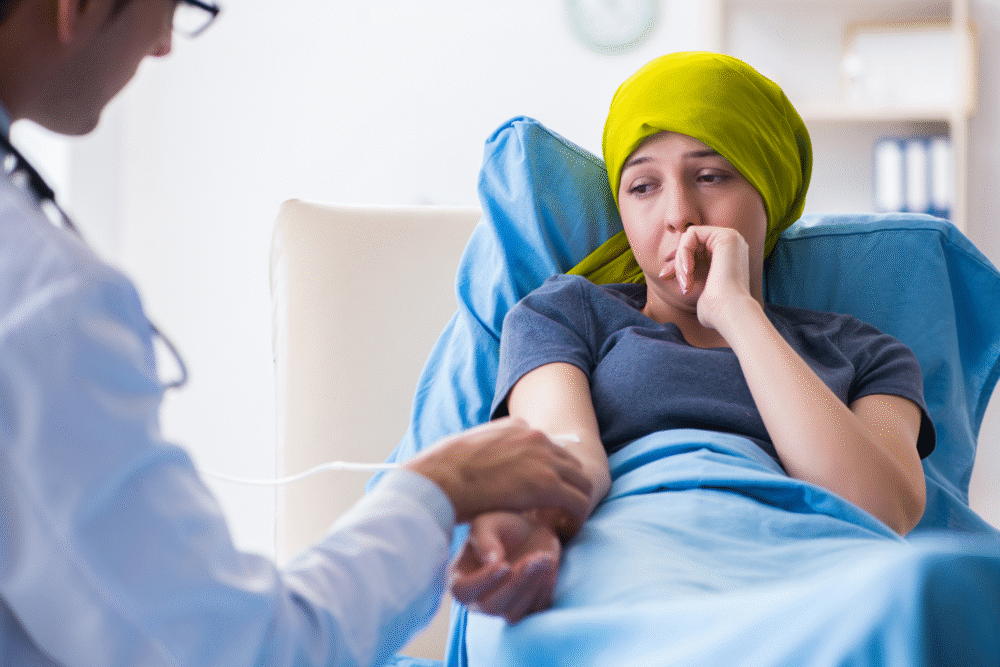New studies reveal a sharp increase in early-onset cancers—and doctors are scrambling for answers.

Cancer in young adults is no longer rare. At Memorial Sloan Kettering Cancer Center, breast oncologist Dr. Shari Goldfarb describes the trend as “serious and worrisome,” pointing to the rapid rise in early-onset cancers diagnosed in people under 50.
Once considered an illness of aging, cancers like colorectal, breast, pancreatic, and uterine are now showing up with increasing frequency in people in their 20s, 30s, and early 40s. Experts suspect a complex mix of factors—lifestyle, environment, diet, stress, and early life exposures—are converging in dangerous ways.
For younger generations, cancer isn’t a distant possibility anymore. It’s a present and growing reality, and doctors around the world are racing to understand why it’s happening—and how to stop it.
1. Generations Born After 1950 Face Higher Cancer Risks

Researchers have discovered a generational pattern called the “birth cohort effect,” where each group born more recently—like those in the 1970s or 1980s—has a higher risk of developing cancer earlier in life compared to previous generations. This pattern holds across multiple cancer types, including breast, colon, thyroid, and kidney.
It suggests something in the environment, diet, or lifestyle changed significantly over the past several decades to influence cancer risk across large populations. These risks aren’t about short-term choices, but long-term exposures that start in childhood and build over time. For younger adults, it means the cancer timeline is shifting—and not in their favor.
2. Obesity, Ultra-Processed Foods and Sedentary Lifestyles Are Major Suspects

Diet and lifestyle have changed dramatically over the past few decades—and not for the better. Increased consumption of ultra-processed foods, added sugars, and refined carbohydrates, combined with sedentary behavior and reduced physical activity, have been strongly linked to rising cancer risk. These habits disrupt hormones, drive weight gain, trigger chronic inflammation, and alter insulin levels—all of which can increase the odds of cancer.
Obesity, in particular, has been tied to at least 13 different types of cancer. However, even people who aren’t obese but follow poor dietary patterns are still vulnerable. For many young adults, these lifestyle patterns began early—and the long-term effects may now be surfacing.
3. Gut Microbiome Disruptions May Be Fueling Cancer

The gut plays a far bigger role in cancer risk than most people realize. Our digestive systems host trillions of bacteria that help regulate inflammation, metabolism, and immune function. But poor diet, antibiotics, chemical exposures, and stress can disrupt this ecosystem, reducing microbial diversity and allowing harmful strains to flourish. Some bacteria even produce toxins that damage DNA or interfere with cell repair, setting the stage for cancer.
Scientists are increasingly linking gut imbalances to colorectal and gastrointestinal cancers in young adults. If the gut is the foundation of health, then these widespread disruptions could explain why cancer is showing up earlier and more aggressively.
4. More Types of Cancer Now Common in People Under 50

It’s not just one or two cancers driving the concern. At least 17 different cancer types are rising in younger adults—including breast, thyroid, pancreas, kidney, gallbladder, stomach, and leukemia. These aren’t isolated cases. The increases are consistent across multiple countries and populations.
While cancer in young people still represents a smaller portion of total diagnoses, the upward trend is sharp and persistent. Many of these cancers are also being diagnosed at more advanced stages, which makes them harder to treat. What used to be considered “rare” in someone under 40 is now happening often enough to raise global concern among oncologists and researchers.
5. Colorectal Cancer Is the Canaries’ Canary

Among all the cancers increasing in young people, colorectal cancer is ringing the loudest alarm. In many countries, rates have doubled or tripled in adults under 50. What’s especially troubling is that many of these cases occur in people without family history or obvious risk factors. Scientists believe the rise is tied to diet, sedentary habits, gut health, and exposure to harmful chemicals over time.
This particular cancer often develops silently, making early detection difficult. The trend has prompted new screening guidelines that recommend starting colonoscopies earlier, in some cases by age 45 or younger. It’s become a warning sign of a larger issue.
6. Early Detection Is Improving—But Lagging

Thanks to lowered screening ages and more awareness, doctors are catching some cancers in young adults at earlier stages. Colonoscopy guidelines have shifted, breast cancer awareness campaigns have expanded, and younger patients are increasingly asking for diagnostic testing when something feels off. That’s the good news. The bad news is that many people still don’t recognize symptoms—or dismiss them.
Younger adults are less likely to have regular checkups, more likely to delay care due to cost, and often get misdiagnosed because doctors aren’t expecting cancer in someone so young. The tools are improving, but awareness and access haven’t caught up.
7. Lifestyle Choices Made Early Matter Later

The habits we form in childhood and adolescence can echo for decades. Studies show that people who stay physically active, maintain a healthy weight, and avoid smoking and heavy drinking in their teens and twenties dramatically lower their risk of developing early-onset cancers.
Regular exercise helps regulate hormones, improve immune response, and reduce chronic inflammation—all of which are protective. In contrast, poor diet, lack of movement, and chemical exposure in early life may silently increase long-term cancer risk. This isn’t about blaming individuals—it’s about understanding that prevention needs to start earlier than we once believed.
8. Environmental and Chemical Exposures Stack Up Risk

Every day, we’re exposed to a mix of synthetic chemicals in plastics, cosmetics, air pollution, cleaning products, and food packaging. Many of these are endocrine disruptors—substances that interfere with hormone function. While each exposure might be small on its own, the cumulative effect over decades can create biological stress that raises cancer risk.
Younger generations have grown up in a world saturated with synthetic materials, processed ingredients, and hidden toxins. These exposures add up in the body, influencing metabolism, fertility, immune strength, and cellular health. It’s not about one thing—it’s the sum of everything over time.
9. Fewer Signs and Late Recognition Adds to the Danger

One of the most dangerous things about early-onset cancer is that it often goes unnoticed. Symptoms like fatigue, abdominal pain, weight loss, or rectal bleeding can be mistaken for minor issues or brushed off entirely—by patients and doctors alike. Many cancers in young people are discovered only after symptoms worsen or persist for months.
Since screening programs typically focus on people over 50, there’s often no safety net to catch these cancers early. That delay means many younger patients are diagnosed at more advanced stages, when treatment is harder and outcomes are worse.
10. Genetic and Aggressive Variants Speak Louder

The biology of early-onset cancer can be different from late-onset cases. Young adults often develop more aggressive subtypes that grow quickly and resist standard treatments. Breast cancers in women under 40, for example, are more likely to be triple-negative or HER2-positive—both of which require more intensive care.
Some of these cancers also involve inherited genetic mutations, like BRCA1 or Lynch syndrome. But many still happen in people with no family history at all. This means genetics alone can’t explain the trend—something in the environment or immune system may be triggering aggressive forms earlier than expected.
11. Mental Stress and Lifestyle Pressures Amplify Biological Risk

Younger generations are growing up in a high-pressure world. Constant digital connectivity, economic instability, and global anxiety contribute to chronic stress levels that can affect the body in subtle but damaging ways. Chronic stress increases cortisol, which weakens immune function, promotes inflammation, and affects hormone balance. Add poor sleep, irregular meals, and excessive screen time, and you’ve got a perfect storm.
While stress doesn’t directly cause cancer, it may weaken the body’s ability to repair cellular damage or fight off abnormal cell growth—making it easier for diseases to take hold when other risk factors are already in place.
12. We’re Only at the Starting Line of Understanding

The rise in early-onset cancer is a global wake-up call—but we’re still in the early stages of figuring it out. Ongoing research is exploring everything from microbiome changes and ultra-processed foods to birth-era exposures and stress patterns.
What’s becoming clear is that cancer in young adults isn’t random—it’s part of a larger generational shift that likely began decades ago. Understanding the root causes now could help reshape how we approach cancer prevention for future generations. The sooner we act, the better chance we have at reversing the trend before it becomes the new norm.